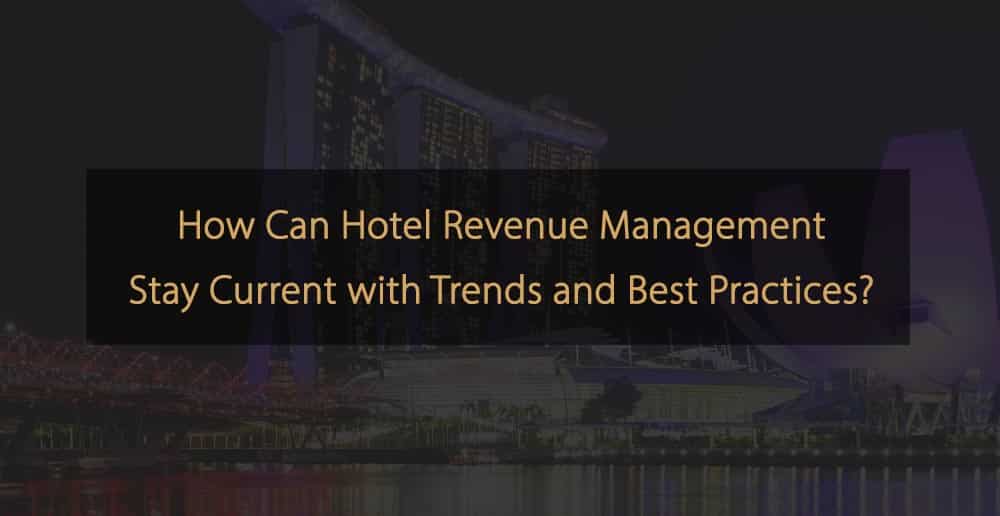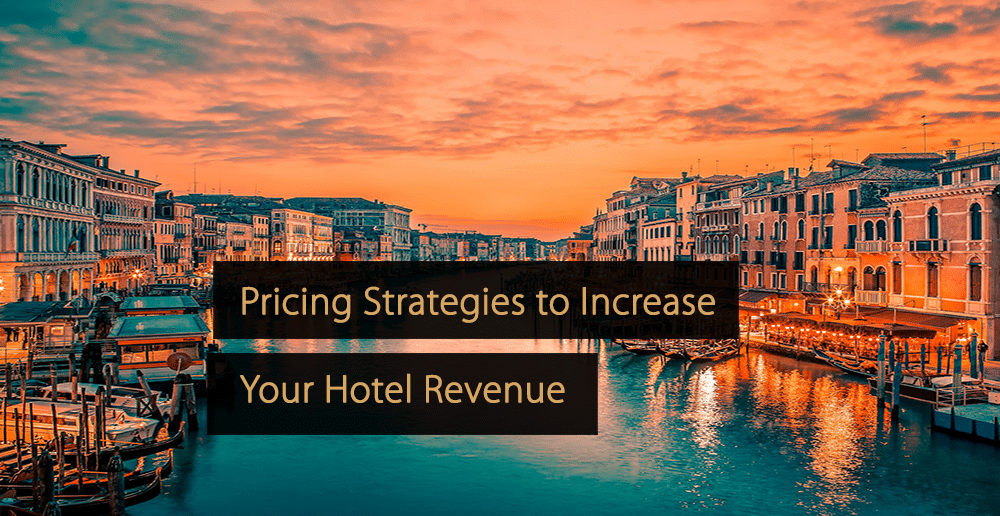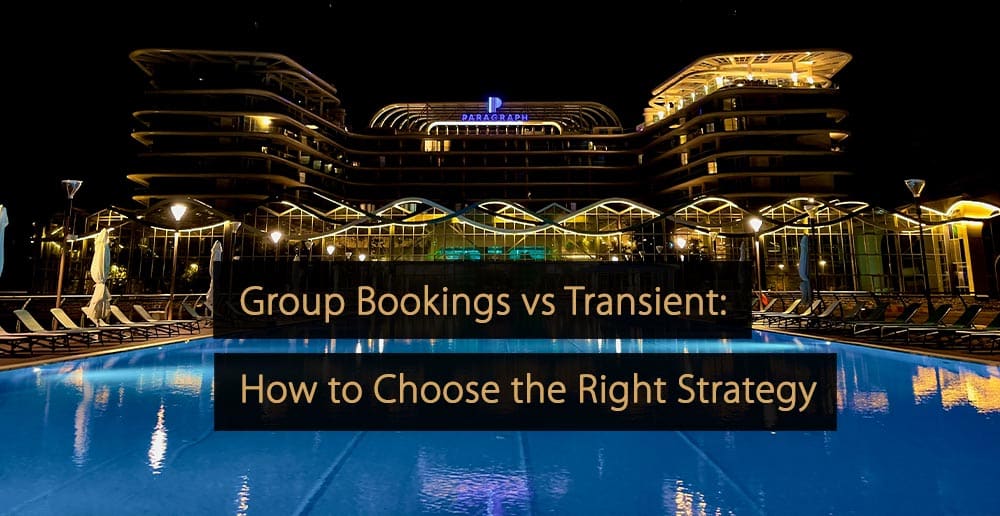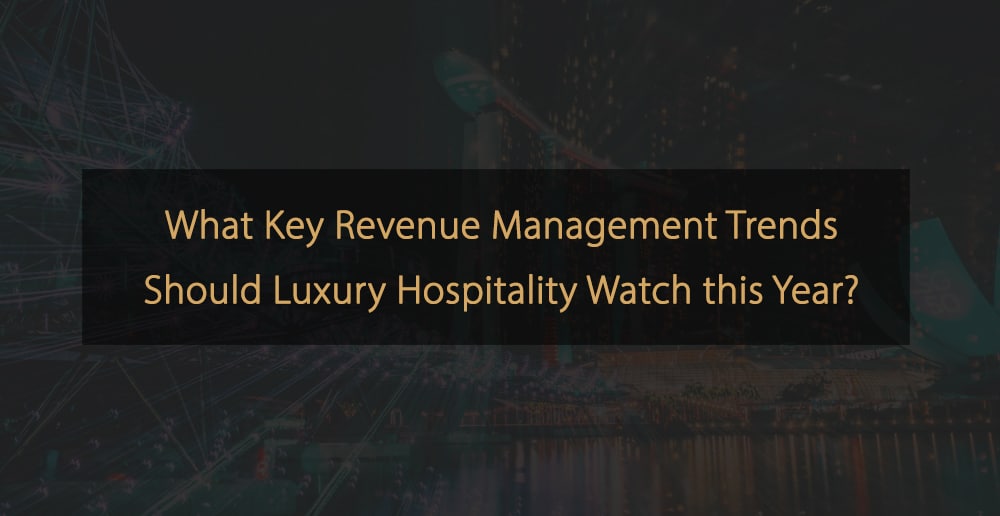Question for Our Revenue Management Expert Panel:
Great hotel reviews have a powerful influence on guests when deciding to book. How does a hotel’s review score impact its pricing strategy?
(Question proposed by Massimiliano Terzulli)
Industry Expert Panel
Our Industry Expert Panel exists out of professionals within the hospitality & travel Industry. They have comprehensive and detailed knowledge, experience in practice or management and are forward-thinking. They are answering questions about the state of the industry. They share their insights on topics like revenue management, marketing, operations, technology and discuss the latest trends.
Our Revenue Management Expert Panel
- Theresa Prins – Founder, Revenue Resolutions
- Sandra Gannon – Commercial Consultant, Revenue Puzzle
- Nikhil Roy – Revenue & Pricing Manager, Key Hospitality B.V.
- Krunal Shah – Cluster Director of Revenue, Dorsett Hospitality International
- Daniel Feitosa – Revenue Management Specialist
- Sergio Sartori – Group Senior Manager Revenue, Ruby GmbH
- Daphne Beers – Owner, Your-Q Hospitality Academy
- Tanya Hadwick – Group Revenue & Yield Leader, SunSwept Resorts
- Heidi Gempel – Founder, HGE International Pte Ltd
- Pablo Torres – Hotel Consultant, TSA Solutions
- Edyta Walczak – Cluster Revenue Manager, Arora Hotels
- Mariska van Heemskerk – Owner, Revenue Management Works
- Heiko Rieder – Revenue Management Professional
- Silvia Cantarella – Revenue Management Consultant, Revenue Acrobats
- Massimiliano Terzulli – Revenue Managent Consultant, Franco Grasso Revenue Team
- Naveed Mirza – Corporate Director of Revenue Management, Helix Hospitality
- Ask Our Panel a Question
- Join Our Expert Panel
“Hotel reviews or a hotel’s online reputation is critical to your pricing strategy. Reviews influence customer decisions to book or not, and it also influences customers’ perceived value for money about your product. If your property consistently has a higher review score than your competitors, you can use this in your favour to price above your competitor set.
It is more important now than ever before since customers are more conscious of what they spend their hard-earned money on.”
“Reviews on any platform are vital for a hotel’s success. You can only demand a certain price based on customers’ feedback. We traditionally compare our rates to the competitive set but it becomes more and more apparent that you can only charge as much as you can offer. This is challenging in the current staffing situation.
I also believe hotels have stopped pro-actively pushing reviews as they are not 100% in control. Reviews should also be looked at as a source of information and analysed accordingly and therefore priced.”
“Traditionally, the price has been one of the main Revenue Management tools, but of late, online reviews have also become a major influencing and deciding factor that affects a customers decision. It is proven that a hotel with a high online review score generates bookings with a high ADR. A prospective guest is more likely to read the reviews of your hotel and what other guests have experienced, than focus on the location, price or services.
If you’re at the good end of the review ratings, as a Revenue Manager you must take this to your advantage and translate it to competitively priced offerings. Further, collaboration with Sales, Marketing and Operations teams is imperative and thus gives a holistic approach to your decision.”
“There are more and more customer reviews that are creating value in hospitality. The Review Score does impact market positioning and thereby contributes to your pricing strategy. It also adds different dimensions towards guest perceptions on booking your property against your competitive set.
Not only good reviews impact your pricing strategy but also replying to both good and bad reviews adds value to the property. E.g., one of our properties had a review score of 66% and this was because the management responses were not 100%. Once we started achieving a reply score of above 90%+, we increased our review score significantly. This helped in more conversion % at a higher ADR, achieving a higher RevPAR overall. It also improves the impression of the hotel.
You can achieve this by keeping the team focused on issues and empowering them to make the right business decisions.”
“Great, realistic, hotel reviews can communicate with people interested in staying at a hotel. More and more, guests seek to know and understand trusted opinions and nothing is better than user feedback. Also, hotels’ replies are very important to understand both sides and the hotels’ environment.
These reviews are telling people why you should choose a hotel and, for me, they help to create value to the price you apply. Reviews can influence and explain the pricing strategy. It’s a great opportunity to add value to the photos and price you show on any reservation site.”
“I don’t see a big correlation between rating points and prices. It is always important to get very good ratings in order to stand out from the competition. The price decision should be dependent on the demand and the current situation.”
“In my experience, it worked positively. With 2 hotels we were ranked in the Top 20 on Tripadvisor in Amsterdam and that enabled us to boost our public pricing. We increased rates YOY by 8%. When we dropped our ranking/scores with one of the properties, we had difficulties maintaining rates.
From what I have seen, the flipping point was around 8.7 (on a scale of 10) and 4.7 (on a scale of 5) which gave the opportunity to boost our rates. This is purely based on my personal experience, no research is done on these figures, but I can imagine that these studies are out there too!”
“When we look at review scores, we typically look at how this is positioning us within the marketplace and our competitors, how easy we are for the guests to see (are we one of the first and therefore on the front page? or are we a couple of pages down?), and the demand that it generates. Therefore, it’s probably more of a billboard impact enhancing visibility and thus creating potential demand than an isolated impact on pricing.
I would suggest that it all comes down to the perceived value in a customer-focused pricing approach and the review scores can assist in achieving the desired result. The customer’s willingness to pay, based on their perceived value, can be different depending on hotel/resorts being luxury vs economy; or having a business vs leisure business mix, and the source of business, which would all need to be factored into the reviews. Those hotels that offer unique or perceived highly valued features or services are probably better able to capitalise on value-based pricing as this gives them a tactical advantage, especially if they also receive excellent guest feedback.”
“Review scores are a indication if the guest experienced a fair value exchange for the money they paid for a hotel stay. Good or great reviews can be interpreted as a fair value exchange where the guest was satisfied or even delighted with the service and experience for the money they paid. The skilled revenue manager understands how to make this value exchange fair for both parties – the guest and the hotel. What is the right price for a room that will meet the expectation of the customer?
The review score has an impact on the overall price positioning of the hotel as good reviews indicate that the guest was happy with the experience he/she paid for. Tactical pricing may not be so impacted by reviews as that is mostly driven by demand and available supply. Positive reviews of customers validate the overall positioning of the hotel in the market and we all know that pricing is one of the strongest indicators of positioning.
Conversely, negative reviews indicate when the hotel is not delivering on the expectations of a customer. When a hotel wants to change its positioning by increasing rates to match a different set of competitors, reviews of the new customer segment will be one of the first measurements of success.”
“We all rely more on the opinions of others rather than the usual commercial message shared by companies. Be it a Hotel, restaurant or hairdresser, the opinions of fellow customers have great influence on whether or not we might be inclined to book there. For some time, Tripadvisor seemed to be the main option to read and search reviews. However, almost every website now offers its own way to track the opinions of customers.
Better reviews mean more demand, therefore an opportunity to increase prices. There is, in fact, an old paper by Cornell stating that a 1 point increase on customer perception helps increase ADR by almost 1%.”
“Guests always search for the best value for their money, therefore when shopping for a hotel stay, they will search for a property that guarantees a great experience. According to TripAdvisor, 93% of the customers find reviews significant when choosing the hotel they want to book, and nearly half of guests do not book prior to reading some reviews. These reviews have a direct impact on how guests perceive the rate and value offered by your property. This is why Reputation Management has a very close correlation with Revenue Management, as online reputation directly affects sales and conversion.
Strong Online reputation:
- Improves CTR and conversion
- Give revenue Managers confidence in driving the rate up
- Improves the online / OTA’s ranking and exposure
- Drives awareness of the hotel
- Attracts new customers
- Represents the value and quality
- Guests are more likely to purchase add-ons to enhance their stay further
- Helps your property to stand out amongst the comp set
- Free advertising – through word of mouth/online reviews
- Ancillary Revenue
Adversely, poor reputation and reviews can result in a decrease in CTR and therefore lesser conversion. If negative reviews dominate a hotel’s online presence, the number of guests and reservations, and therefore revenue, will decline. Furthermore, it will also impact your booking rate.
Effective hotel reputation management help hoteliers to stand out and gives potential customers the confidence that your property is the right choice for their trip.”
“First of all, it is important to define your competitive set, based on a number of aspects and then compare review scores. Typically hotels with higher review scores are able to increase their rates. So what is your pricing level vs. quality perceived by guests vs. your competition? If your rates are quite low and your review score is higher compared to the competitor there might be a chance to increase your rates.
But please keep in mind to never only look at one or two things. There are a lot of ways to assess your pricing strategy and your review score is only one of them.”
“The importance of review sentiments for a hotels price positioning is unquestionable, competing on price alone is not a winning strategy. Observations demonstrate that ratings (aggregated score based on individual consumers’ scores) have far less impact on the consumers’ value-perception as reviews as it’s seemingly understood that ratings are oftentimes aggregated from consumer scores of the distant past or there is some level of mistrust on ratings for other reasons.
Consequently, hotels must not only understand their own review sentiment but also that of their competitors, to successfully position themselves in a highly competitive market.
Furthermore, and this is where the ratings do become a crucial element, in large, competitive marketplace consumers will filter out from the search results a large percentage of hotels based on rating score. As online consumers have become more educated in the booking process, star ratings or price ranges are less often used to reduce the search results as rating scores. The quantity of hotels with high scores defines the threshold. For the remaining hotels, the sort order by price matters more as the consumer is somehow assured in terms of quality aspects.
Fortunately for revenue managers, consumers do not look at pricing as an indication of quality. Therefore, within reasonable bounds and at low frequency, for hotels with good reviews, price can be used to generate short term demand without impacting long term quality perception. This also means that hotels with low review sentiment will not get more bookings when lowering their rates. They should keep the rates competitive and focus their efforts on the collection of better reviews.
There is no one-fits-all solution to this complex topic but it confirms how crucial decent review scores and review sentiments are in particular to hotels in large marketplaces. Falling below market average on user-generated content scores simply gets you into the spiral of fewer bookings and bad conversion rates which are the main drivers for bad rankings on the search pages of the global OTAs. With bad qualitative results, it is also not possible to achieve good ROI from CPC on meta sites; using CPA would be the wiser strategy.
Detached from all aspects listed, it must not be forgotten that user scores and price are not the only drivers for conversion and demand generation amongst others like location, services and, increasingly more important, the green certification. Hotels with truly unique selling points are likely to be less affected by the impacts of user-generated review scores.”
“Good reviews are critical in hospitality. Certainly, having a good reputation has a positive effect among the factors that influence the booking behaviour, but I don’t think the hotel’s review score can be defined as a real driver that influences the price decision. When we implement a revenue management strategy we must always start from the basics: segment, moment, channel, duration… and then work granularly on the room type, rate plan, the elasticity of demand, supply, price sensitivity, competition, market, demand forecast, etc.
Working on the foundations allows us to create a solid base on which to build the price. Having an excellent reputation increases visibility, positioning and propensity to buy for those who are researching on that specific channel. So it influences (like one among many other factors), but in my view, it does not impact the pricing strategy.”
“Today it is evident that having a very high review score on Booking.com, Tripadvisor, Google etc. greatly influences the visibility of a property in online algorithms, and consequently the number of bookings and the conversion rate (ratio of bookings to visits). This is the objective criterion of quality of a property that users prevalently rely upon, much more than the stars awarded by local authorities. Online reputation is the most successful and cost-effective form of marketing that exists today.
Lots of studies show that the factor that determines the final choice of one property over another, characteristics (location, services, etc.) being the same, is precisely the online score. In narrowing down the search results in fact, the vast majority of users tend to select filters (e.g. 9+ on Booking or 4+ on Tripadvisor) or sort the results by score according to certain selection criteria (e.g. 4-star hotels with breakfast, parking, free cancellation, etc.).
This has a decisive impact not only on the number of bookings and conversion rate but also on the ADR (average daily rate) to which a hotel can sell. The higher the score, the higher the potential sales price accepted by the market to book that property. And all conditions being equal, more than 80% of people choose to pay slightly more for the property with the highest score.
But there are other variables just as important as quality. That is the quantity and freshness of the reviews. With the same review score, the algorithms give greater visibility to the properties with more reviews, even more so if recent, as a sign of greater reliability and credibility. And by collecting more reviews it also becomes easier to mitigate the impact on the overall average of those few negative and unfair (if not fake in some cases) reviews that statistically involve each hotel.
The quantity is also linked to the freshness and regular frequency of the reviews. That’s why those who have always remained open during the pandemic have had the opportunity to continue to collect reviews even in the most difficult periods such as the lockdown, thanks to essential travellers, and to keep their online ranking constantly high. This has been a competitive advantage that has allowed these facilities to recover earlier and better than the others as soon as vaccinations and the easing of restrictions have allowed a return of tourists and events.
Therefore, it is essential to create a culture aimed at constantly improving one’s reputation, with the whole staff adequately educated and motivated to achieve the goals through constant analysis and learning, and to collect not only excellent reviews, but as many and as frequently as possible.”
Ask a Question & Join Our Expert Panel
Would you like a question to be answered by our Industry Expert Panel? Or would you like to join our community of experts and share your experience, insights, and knowledge with fellow industry professionals? Via the buttons below you can submit a question or submit a request to become part of our expert panel.
More Tips to Grow Your Business
Revfine.com is the leading knowledge platform for the hospitality and travel industry. Professionals use our insights, strategies, and actionable tips to get inspired, optimize revenue, innovate processes, and improve customer experience.Explore expert advice on management, marketing, revenue management, operations, software, and technology in our dedicated Hotel, Hospitality, and Travel & Tourism categories.























Leave A Comment